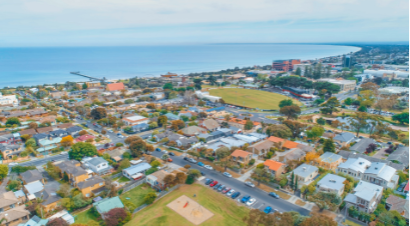Melbourne Home Loans for Students: Yes, You Can Buy While Studying
Home loans for students in Melbourne may seem out of reach, but with the right approach, they are possible. Homeownership helps students build long-term financial security, but challenges like low income, limited savings, and strict lending criteria often stand in the way.
This is where experienced mortgage brokers like LM Connect make a difference—they simplify the mortgage loan process, connect students with competitive loan options, and provide expert advice in relation to eligibility and grants.
With the right financing partner, students can explore affordable homeownership opportunities without unnecessary stress.
In this guide, we’ll break down everything you need to know about how to apply for home loans as a student in Melbourne, ensuring you make an informed financial decision.
🏡 Need Home Loan help?
We've helped thousands of locals.
Just call us on 0423 713 362
Or visit our main website
What Are Home Loans for Students?
Home loans for students are specialised loan options designed for university and TAFE students aged 18 and above who have a stable income and want to buy property in Melbourne or Victoria.
While students often face challenges like limited savings, part-time income, and strict lending criteria, some lenders offer flexible solutions to help them enter the property market. However, students must demonstrate repayment ability, financial wellness, and a reliable source of income to qualify.
Key Features of Student Home Loans
- Lower Deposit Requirements – Some lenders accept as little as 5–10% of the purchase price, but Lenders Mortgage Insurance (LMI) applies if the deposit is under 20%.
- Flexible Loan Terms – Borrowers can choose between fixed-rate mortgages, variable home loans, or split home loans based on their financial situation.
- Guarantor Support – A parent or guardian can act as a guarantor, helping students access higher loan amounts and avoid LMI costs.
- Access to Government Grants – Eligible home buyers may qualify for the First Home Owner Grant (FHOG) in Victoria and stamp duty exemptions, but grants apply mainly to new properties.
Who Can Apply?
- University and TAFE students aged 18+ who are employed part-time or full-time and can prove stable income.
- Postgraduate students working in a stable job who meet lender requirements for minimum earnings and deposit savings.
- Students with a guarantor (such as a parent or family member) who can help secure the loan and increase borrowing capacity.
Since student loan applications involve additional requirements and strict lending criteria, working with experienced mortgage brokers can simplify the mortgage process and help students explore the best loan options available.
Do International Students Also Qualify for Home Loans?
International students in Melbourne may be eligible for home loans, but stricter lending requirements apply. Lenders assess visa status, financial stability, and deposit size before approving a loan.
Below are the types of international students who can access home loans and the key parameters they need to meet.
Temporary Visa Holders (Subclass 500, 485, and 600)
- Some lenders allow international students on a Subclass 500 (Student Visa) or Subclass 485 (Temporary Graduate Visa) to apply for a home loan.
- Students must have a substantial deposit, typically 20–30% of the purchase price, as lenders mortgage insurance (LMI) is usually not available for temporary residents.
- A stable income from employment in Australia is required to prove repayment ability, and bank statements showing genuine savings are essential.
Permanent Residents and New Zealand Citizens
- Permanent residents (PR) and New Zealand citizens under the Special Category Visa (Subclass 444) are treated similarly to Australian citizens for loan approval.
- They may qualify for the First Home Owner Grant (FHOG) in Victoria and lower deposit options, sometimes as little as 5–10% of the purchase price.
- They must meet standard lending criteria, including submitting a tax return, proof of employment, and meeting loan terms set by major banks.
Foreign Investment Review Board (FIRB) Approval Requirement
- Non-residents, including most international students, must obtain Foreign Investment Review Board (FIRB) approval before purchasing property in Australia.
- FIRB approval is required for buying new properties but is generally not granted for existing properties, limiting international students' options.
Joint Applicants with Australian Citizens or PR Holders
- International students can apply for home loans as joint applicants with an Australian citizen or permanent resident to improve their chances of approval.
- This setup allows them to access a lower deposit requirement, better loan rates, and a wider range of loan options, as the primary applicant meets local lending standards.
International students interested in homeownership should seek professional advice from mortgage brokers to understand legal requirements, lender policies, and government regulations.
Each lender has different rules, so working with an experienced broker ensures a simple experience when applying for a loan.
🏡 Need Home Loan help?
We've helped thousands of locals.
Just call us on 0423 713 362
Or visit our main website
Types of Home Loans Available for Students with Broker Support
Students may qualify for home loans, but approval depends on income stability, savings, and lender policies. While full-time students without employment may struggle to meet repayment ability requirements, those with part-time work or a guarantor have better chances.
Below are loan options students can access with the help of mortgage brokers.
Low-Deposit Home Loans
In low-deposit loans, some lenders accept a 5–10% deposit, but students must show genuine savings and consistent employment. If the deposit is below 20% of the purchase price, Lenders Mortgage Insurance (LMI) applies, increasing overall loan costs.
Guarantor Home Loans
In a guarantor loan, a parent or family member can act as a guarantor, allowing students to borrow up to 100% of the purchase price without needing a large deposit. However, the guarantor’s property is used as security, which carries financial risk for them.
First Home Buyer Loans with Government Grants
Eligible students may qualify for the First Home Owner Grant (FHOG) in Victoria, which offers $10,000 for new homes under $750,000. Stamp duty exemptions apply for first-home buyers purchasing properties under $600,000, while discounts apply for properties up to $750,000.
Fixed-Rate Loans
A fixed-rate mortgage locks in a set loan interest rate for a specific period (e.g., 1–5 years), ensuring consistent monthly payments. This is ideal for students who prefer predictable repayments, though lenders assess affordability using a higher stress-test rate.
Variable Home Loans
A variable home loan allows monthly mortgage payments to fluctuate based on market interest rates. While this can lead to a competitive rate when rates drop, borrowers must be prepared for possible increases.
Split Home Loans
A split home loan divides the mortgage into fixed and variable portions, offering both stability and flexibility. This option is suitable for students with part-time work who want consistent repayments while benefiting from potential rate reductions.
Joint Applicant Loans
Students can apply for a home loan with a partner, family member, or friend to increase borrowing capacity. However, all applicants must provide proof of income and meet lender requirements for repayment ability.
Since each mortgage lender has different policies, mortgage brokers can help students find the best loan product suited to their financial wellness. Working with an experienced broker ensures a simple experience and increases approval chances.
Top Tips Students Can Get a Home Loan
Buying a home as a student in Melbourne comes with challenges, but it’s not impossible. With the right strategies, eligible participants can improve their chances of pre-approval, secure better loan terms, and successfully enter the property market.
Here are the best ways for students to get approved for a home loan.
- Show Proof of Stable Income: Lenders assess income stability over a period of time to determine if you can manage repayments. Whether it’s part-time work, a casual job, or freelance income, students need to prove consistent earnings through bank statements, tax returns, and pay slips.
- Leverage Scholarships and Other Income Sources: While scholarships aren’t considered income for most lenders, students receiving stipends or living allowances may use them to supplement their savings. Additional income sources like family support from legal guardians, rental income from an investment property, or freelance work can strengthen your loan application.
- Improve Your Credit Score and Credit History: Lenders review your credit report to assess financial responsibility. Avoid personal loans, excessive credit card use, and late payments to maintain a strong credit score and credit history, which improves approval chances.
- Save for a Larger Deposit: A higher deposit reduces house prices that require financing and can help avoid Lenders Mortgage Insurance (LMI). Aim for at least 10–20% of the property price, showing lenders your commitment and financial discipline.
- Apply for Pre-Approval: Pre-approval helps students understand their borrowing power before house hunting. It also strengthens negotiations with sellers, as conditional approval indicates the bank’s willingness to lend a specific amount.
- Choose the Right Property Type: Some lenders have restrictions on property type, so students should consider homes that meet standard lending requirements. Properties in good condition with strong resale value are more likely to qualify for financing.
- Consider a Shared Equity Scheme: Victoria’s shared equity scheme helps eligible participants buy property with a lower deposit by co-owning it with the state government. This reduces upfront costs and makes homeownership more accessible for students with limited savings.
- Use a Mortgage Calculator to Plan Repayments: A mortgage calculator helps students estimate monthly repayments, loan interest rates, and comparison rates. Understanding these costs in advance ensures you can budget properly and avoid financial strain.
- Make Extra and Additional Repayments: Lenders favour borrowers who can make extra repayments or set up additional repayments beyond the minimum requirement. This shows financial discipline and may result in lower interest over time.
- Compare Lenders and Understand Fees: Look at different banks and lenders to find the best comparison rate and avoid high application fees. Consulting a mortgage broker helps students find suitable loan options with competitive terms.
By following these tips, students can increase their chances of home loan approval and take their first step toward homeownership in Melbourne.
🏡 Need Home Loan help?
We've helped thousands of locals.
Just call us on 0423 713 362
Or visit our main website
FAQs
Can students get home loans in Melbourne?
Yes, many lenders offer student-friendly loan programs tailored to part-time income and unique financial needs.
How much deposit do students need for a home loan?
Students typically need at least 5% of the property’s purchase price as a deposit.
Are government grants available for student home buyers?
Yes, programs like the FHOG can provide significant financial assistance to eligible students.
What documents are required for a student home loan?
You’ll need proof of income, savings, ID, and enrollment confirmation.
What suburbs in Melbourne are best for student homeownership?
Affordable suburbs include Footscray, Brunswick, and Clayton.
Can students buy a home with part-time income?
Yes, lenders assess part-time income and may approve loans with the right supporting documents.
Do brokers charge fees for their services?
Some brokers may charge fees, while others earn commissions from lenders.
Conclusion
Buying a home as a student in Melbourne in 2025 is possible with the right strategy and support. Understanding loan options, improving your credit score, and working with experienced mortgage brokers can make the home loan process a simple experience.
If you're ready to explore your options, LM Connect can help you find the right loan product and guide you every step of the way. Get expert professional advice, compare lenders, and learn how to maximise your approval chances. Book a free consultation today at
LM Connect or call
0423 713 362 to take the next step toward homeownership!




